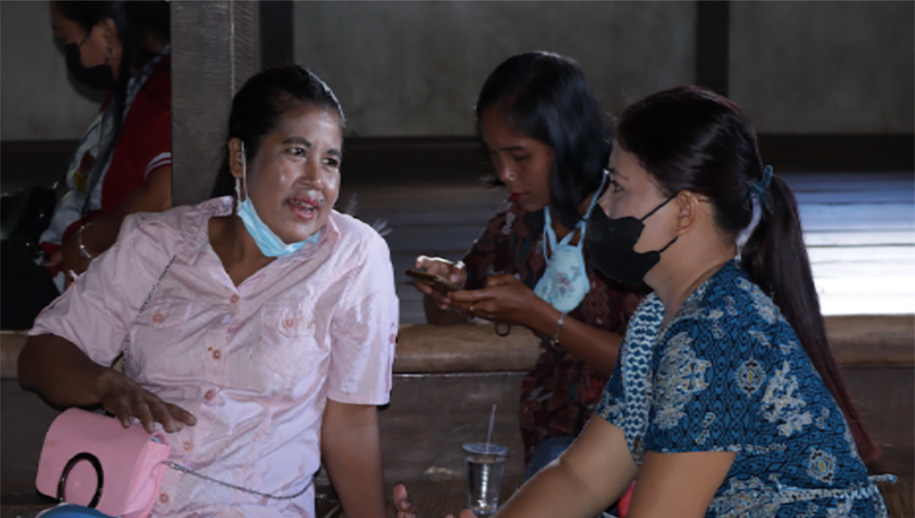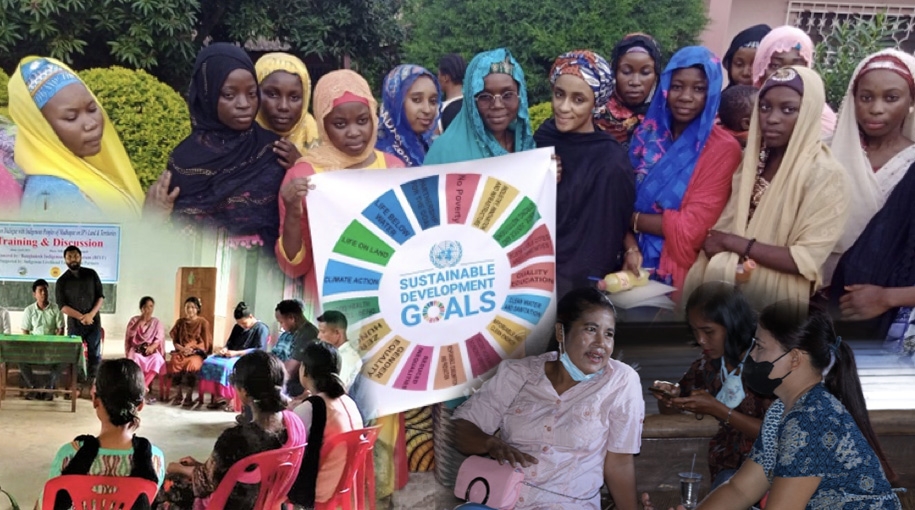“[The training program] has increased my capacity as a human right advocate for indigenous women in Cameroon,” said Asatu Amadou, staff of Lelewal Foundation in Cameroon, at the conclusion of her policy advocacy plan implementation.
Around 24 young indigenous leaders have implemented their advocacy plans from July 1, 2021 to August 31, 2022 as part of the capacity building program for second-generation leaders around the world that was implemented in 2021.
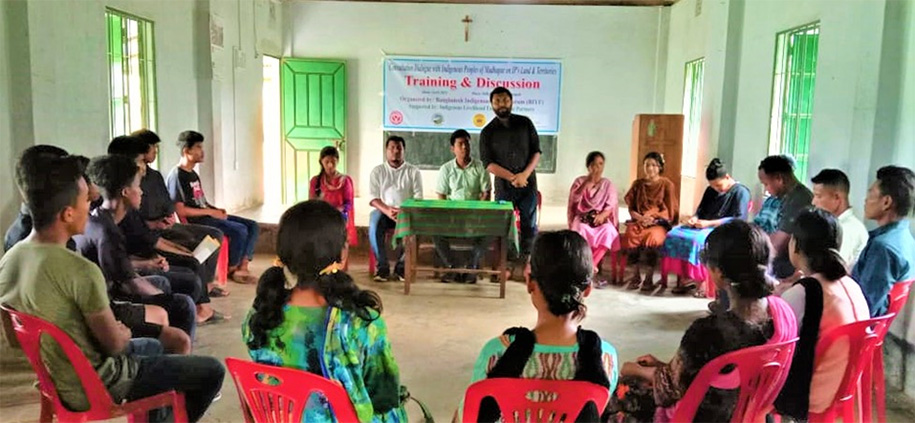
The training program aimed to equip next generation indigenous leaders with clear understanding of their rights and skills to undertake sustained advocacy with their government and in key global processes as well as to lead in initiatives and actions that help strengthen and develop their communities and organizations.
The first phase of the capacity building program were three series of virtual training on policy advocacy with focus on the UN Convention on Biological Diversity (UN CBD), the UN Framework Convention on Climate Change (UNFCCC) and the Sustainable Development Goals (SDGs), respectively. 80 young indigenous leaders from partner organizations of Elatia, Nia Tero and other regional indigenous peoples’ networks participated in the virtual training sessions.
The roster of trainers-facilitators was composed of indigenous leaders and experts with long years of experience in policy advocacy on indigenous peoples’ rights, biodiversity, climate change and sustainable development, among others, in the different UN bodies and processes.
During the virtual sessions, participants developed their own policy advocacy plans in accordance with the policy agenda of their organizations or communities in the UN CBD, or in the UNFCCC, or on the SDGs. The trainers-facilitators coached them to develop a smart advocacy plan that can guide them in their policy advocacy initiatives.
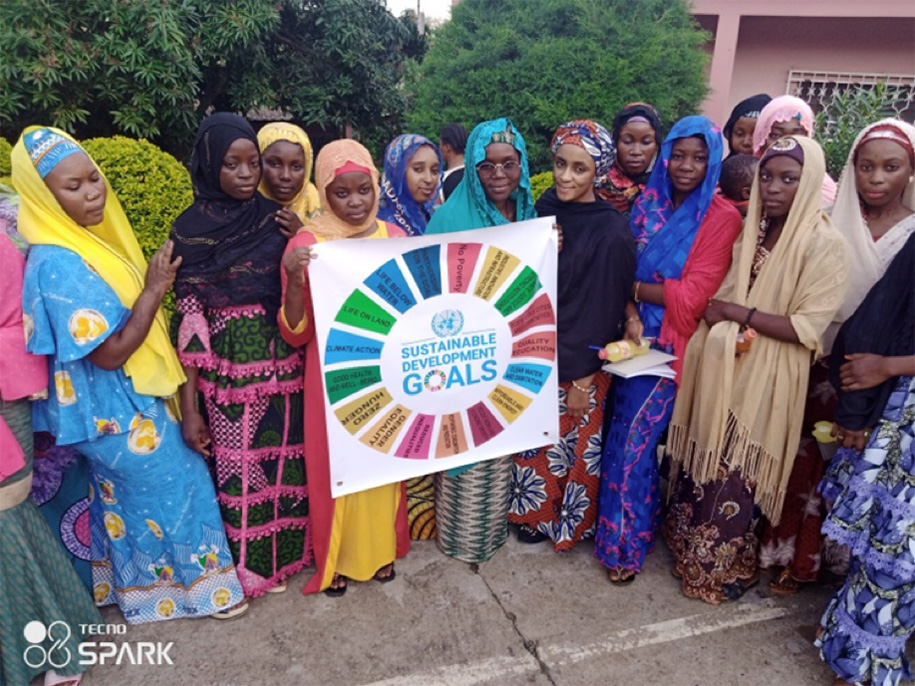
The objectives, targets and activities of the advocacy plans were multifaceted but were aligned with the UN CBD, UNFCCC and the SDGs and in response to the needs of their communities.
The second phase was the implementation of the selected advocacy plans through a small grant from Nia Tero.
Oktavianus of Institut Dayakologi (ID) in Indonesia lobbied the village government of Bungkang in the Sanggau Regency in the West Kalimantan province in Indonesia to encourage the village government to include indigenous peoples in its protection program. A month after, the village head contacted ID to seek support for the design of a protection program to be included in the fiscal year of 2022.
In May 2022, Idris Fredison and Shylina Lingaard of the Association of Indigenous Village Leaders in Suriname VIDS spearheaded the engagements of indigenous youths with the Ministry of Spatial Planning and Environment as well as with the Parliament of Suriname in Paramaribo. They submitted their petition to the said Ministry and read it before the chairman of the Parliament.
Part of the petition said, “We young people and our families sometimes become distraught because we can no longer take care of ourselves and we are not sure of our existence. We look for solutions. We are students and our village councils are counting on us, as young advocates.”
Raissa Madaki of REPALEAC Cameroon led an advocacy workshop in April 2022 with local stakeholders including some different ministries of the government of Cameroon, community leaders and civil society organizations. Access of indigenous women to cultivable land and to agricultural inputs and products as well as their capacity building for in simple farming techniques were the focus of the workshop.
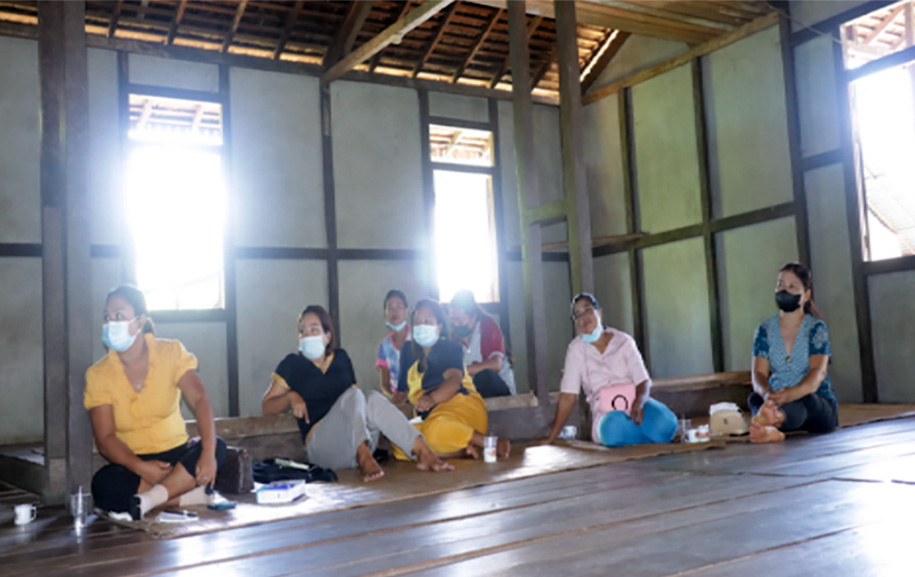
“We will ensure that indigenous women have direct access to land in our decentralization process within our local council,” committed the mayor of Mandjou, East region of Cameroon during the workshop.
For some, COVID-19 affected the timely implementation of their advocacy plans. Health protocols and restrictions imposed prevented the grantees to carry out their planned activities in their target areas such as community awareness raising activities. A few grantees also contracted COVID-19 and had to adjust their implementation period.
Jointly implemented by Indigenous Livelihoods Enhancement Partner (ILEPA) based in Kenya and the Elatia Indigenous Peoples Training Institute based in the Philippines, the capacity building program was made possible with support of Nia Tero, Bread for the World and Tebtebba.***
